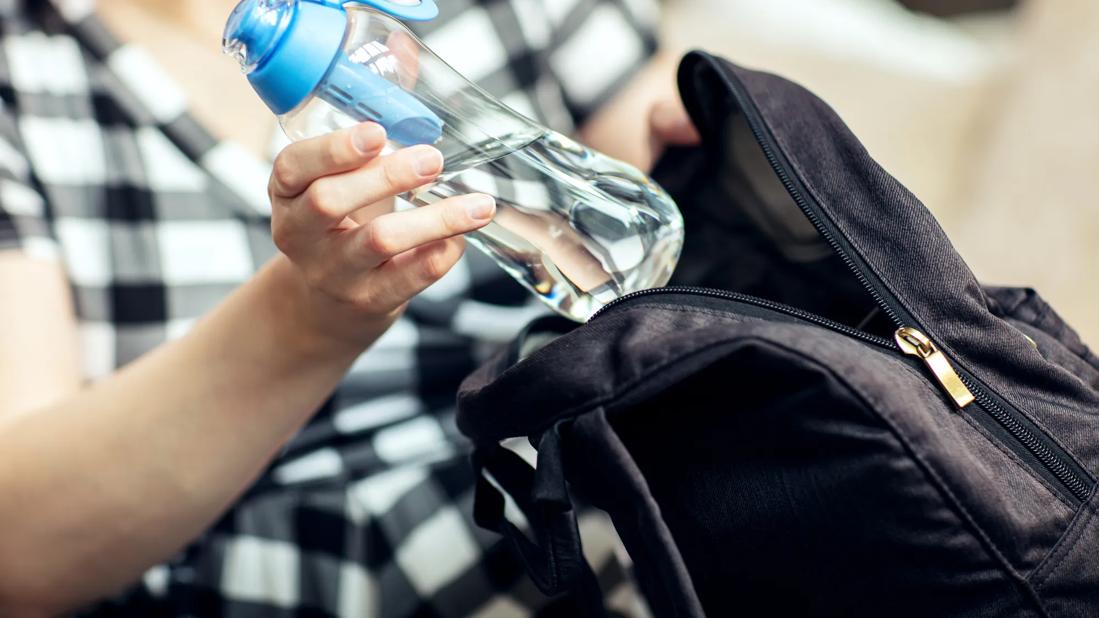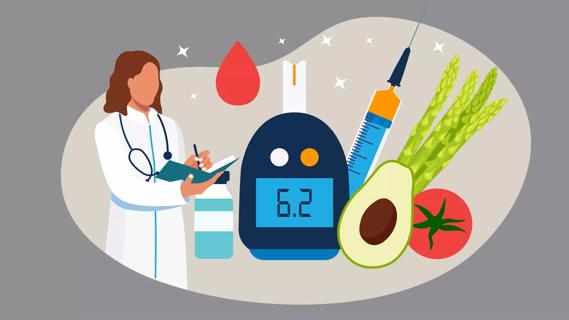Hot, humid weather can affect your blood sugar levels and even cause dehydration or heat stroke

If you have diabetes, heat can affect your blood sugar — especially if you use insulin or your blood sugars aren’t effectively managed.
Advertisement
Cleveland Clinic is a non-profit academic medical center. Advertising on our site helps support our mission. We do not endorse non-Cleveland Clinic products or services. Policy
For example, your level of activity in the heat may increase your risk for low blood sugar (hypoglycemia) or high blood sugar (hyperglycemia).
That’s why endocrinologist Marwan Hamaty, MD, says it’s important to get a handle on your blood sugar before you engage in summer fun.
Hot weather may affect your blood sugar levels depending on:
“If your blood sugars are mostly higher than 250 mg/dl, I recommend improving your blood sugar before engaging in heavy physical activity, regardless of the climate and the temperature,” says Dr. Hamaty.
Humidity can also play a role. Moist heat means your sweat takes longer to evaporate and can cause your body to work harder to cool you off.
Here’s how the heat can affect you:
Physical activity usually causes blood sugar levels to decrease, reducing your need for insulin. But exercising in the heat may also cause your blood sugar levels to rise.
Dr. Hamaty says this means you should take extra precautions and monitor your sugar levels before exercising.
“I advise my patients to adjust their insulin dosage prior to engaging in physical activity because insulin adjustment could vary significantly, if not managed properly,” he notes.
Advertisement
He also suggests seeking input from your doctor, regardless of the temperature, before adding physical activity to your routine.
If the heat and your activity make you sweat a lot, you may become dehydrated, leading to a rise in glucose levels. So, adequate hydration is crucial.
“If you become dehydrated, your blood glucose levels will rise,” explains Dr. Hamaty. “This can lead to frequent urination, which then leads to further dehydration and even higher blood sugar levels — a kind of vicious cycle.”
Things can become even worse if you manage your diabetes with insulin.
“Dehydration reduces blood supply to your skin and, therefore, reduces your body’s ability to absorb the insulin you’ve injected,” he adds.
If you’ve had complications from diabetes that have damaged the nerves to your sweat glands, you may be unable to sweat properly. This can become serious as outdoor temperatures rise, leading to heat exhaustion and heat stroke.
Extreme temperatures can also damage your medications and testing equipment.
Most types of insulin can tolerate temperatures up to 93 to 95 degrees Fahrenheit (33.9 to 35 degrees Celsius). Exposing your supply to anything higher than this will make the medication quickly break down. Be careful and pay attention to any insulin you’re carrying with you in the heat.
And while it’s fine to store insulin and glucagon in the refrigerator, extreme heat (as well as freezing temperatures) will cause the medications to degrade, making them ineffective and unusable.
High temperatures can have a negative impact on other medications and diabetes management supplies. Don’t forget about the weather’s effect on things like test strips and monitoring devices. When the mercury begins to rise, these items can change in their effectiveness.
“You need to protect yourself and your supplies during both winter and summer,” states Dr. Hamaty.

Image content: This image is available to view online.
View image online (https://assets.clevelandclinic.org/transform/125162e7-7723-49d5-8488-91f903cc7840/diabetes-in-the-heat-infographic)
“You can participate in outdoor activities and enjoy all types of weather as long as you take a few precautions,” says Dr. Hamaty.
Follow these tips to help manage your diabetes while enjoying the outdoors:
Advertisement
Diabetes doesn’t have to sideline you from fun outdoor activities. You may just need to find the right time of day to enjoy summer (or another time of year).
“While I advise staying active during the peak winter or summer months, I also tell people to try to take advantage of outdoor activities when temperatures aren’t too extreme,” says Dr. Hamaty. “By taking a few precautions, you can enjoy an active, healthy lifestyle in most any weather.”
Advertisement

Sign up for our Health Essentials emails for expert guidance on nutrition, fitness, sleep, skin care and more.
Learn more about our editorial process.
Advertisement

The good news? Prediabetes can be erased with healthy lifestyle changes, including eating more nutritious foods

Fresh or frozen fruits that are low on the glycemic index should be your go-to, as they’re full of fiber and other nutrients

Adding nuts like pistachios, almonds or pecans to your diet can help manage blood sugar levels

A diabetes diagnosis, new or long-standing, can trigger reactions like grief, stress, depression and frustration, but symptom relief and help are available

The short answer: Yes, but you need to eat it in moderation and keep track of how much you consume

Sweet potatoes are great, but sweetened drinks aren’t so great

Some sweeteners may have health risks, so it’s best to keep your intake moderate

Lifestyle changes like diet and exercise can help

Even small moments of time outdoors can help reduce stress, boost mood and restore a sense of calm

A correct prescription helps your eyes see clearly — but as natural changes occur, you may need stronger or different eyeglasses

Both are medical emergencies, but they are very distinct events with different causes